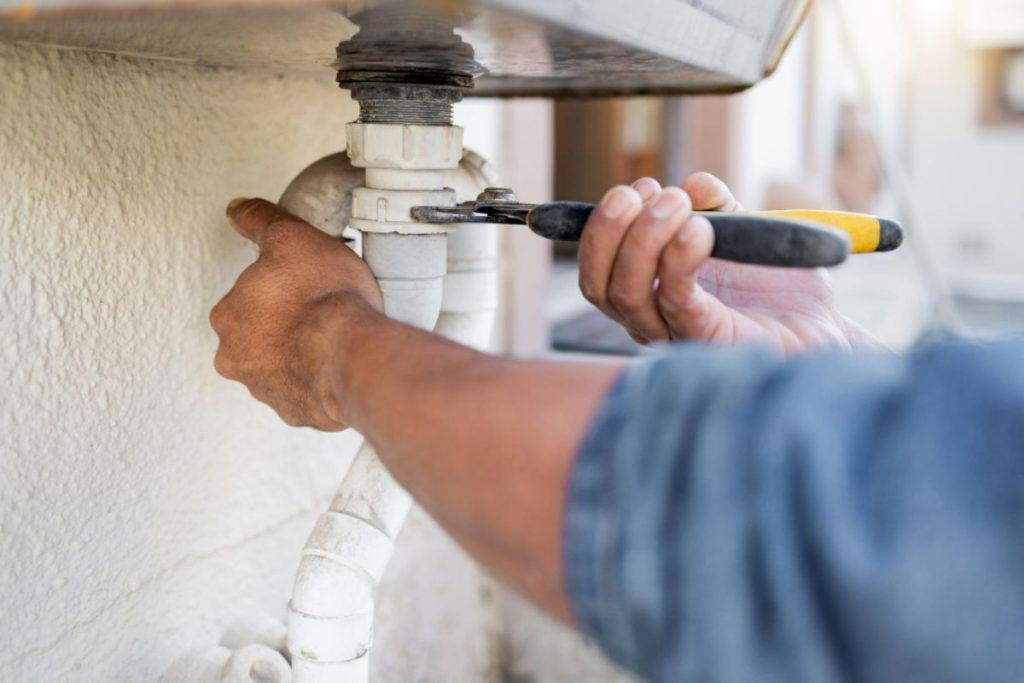What are the common misconceptions about plumbing?
- Chemical drain cleaners are a quick fix
- Hot water dissolves grease blockages
- Tightening fittings stops leaks
- Toilets can handle anything
- DIY plumbing projects always save money
Overview
- The importance of plumbing systems extends beyond mere convenience, impacting various aspects of daily life and societal well-being.
- By addressing these misconceptions, we hope to empower you to make informed decisions regarding your plumbing systems.
- Investing in high-quality pipes from the start is crucial for a reliable and long-lasting plumbing system.
- Professional plumbers recognize that a comprehensive approach is necessary to address leaks effectively.
Maintaining a functional and efficient plumbing system is essential for any building. However, several common misconceptions can lead to improper practices and costly problems.
In this article, we will highlight the common misconceptions about plumbing, encouraging a professional approach like investing in high-quality plumbing pipes to ensure the longevity and integrity of your system.
Chemical Drain Cleaners is a Quick Fix
Chemical drain cleaners are often perceived as a quick fix for clogged drains due to their availability and ease of use. While they can provide temporary relief by breaking down organic material causing clogs, they come with significant drawbacks.
They contain harsh and corrosive chemicals like sulfuric acid or sodium hydroxide, which can damage pipes over time, especially if used repeatedly. This damage can lead to costly repairs or even the need for pipe replacement.
Moreover, chemical drain cleaners may not effectively clear all types of clogs, especially those caused by non-organic materials like hair or mineral buildup. In such cases, professional plumbing services are often required to fully resolve the issue.
Hot Water Dissolves Grease Blockages
Grease, typically from cooking oils, solidifies as it cools, adhering to the walls of pipes and forming blockages over time.
In situations where hot water is used to clear a grease blockage, it might seem effective initially as it loosens some of the grease, but the problem often returns once the water cools and the grease solidifies again. This means they can only penetrate so far into the blockage, leaving behind residual grease that can continue to accumulate and cause future blockages.
Instead of relying on hot water’s fleeting effects, consider more effective methods to tackle grease clogs, like investing in reliable black iron to provide a long-term, reliable solution for your plumbing system. This will ensure efficient function and minimize the risk of costly repairs.
Tightening Fittings Stops Leaks
Imagine rushing to fix a leaky faucet. A few days later, you hear a dripping sound—a new leak has developed further down the pipe due to the stress caused by over-tightening.
Over-tightening can put undue stress on the pipes themselves, especially with rigid copper pipes. This internal stress can cause the pipe to weaken or even crack over time, leading to a leak at a different location, potentially behind a wall or under the floor.
Many fittings rely on gaskets and washers to create a watertight seal. However, excessive force can crush these gaskets, compromising their ability to form a proper seal. A good rule of thumb is snug, not enough to break something. If you’re unsure, consult a professional plumber to ensure a secure and leak-free connection.
Toilets Can Handle Anything
Many of us have heard the phrase “Toilets can handle anything you flush.” But the truth is, they are surprisingly particular about what they can process. They are essential for sanitation, but they’re not garbage disposals.
Toilets have a carefully engineered pipe diameter and water flow rate optimized for swift removal of waste. Flushing bulky items like diapers, wipes, or cotton swabs disrupts this flow. These materials can get stuck in the pipes, forming stubborn blockages that can be difficult and expensive to remove.
Sticking to what toilets are designed for keeps your plumbing system healthy, avoiding costly repairs. Flushing the wrong objects not only leads to clogs in your pipes. It also contributes to problems further down the line in municipal sewer systems. This can cause overflows and environmental hazards.
DIY Plumbing Projects Always Save Money
Plumbing systems involve complex components and proper installation techniques. Without the knowledge and experience of a licensed plumber, attempting a DIY fix could lead to mistakes that go unnoticed at first.
What’s more, many plumbing jobs require specialized tools that most homeowners wouldn’t have on hand. Buying these tools for a one-time project might not be cost-effective, and using the wrong tools can worsen the problem.
While some simple tasks like replacing a faucet washer might be manageable for a DIY enthusiast, it’s generally best to leave complex plumbing repairs to licensed professionals. They have the expertise, tools, and experience to diagnose problems accurately and fix them efficiently, saving you time, money, and frustration in the long run.
Key Takeaway
Our homes rely on a complex network of pipes that silently handle waste and deliver fresh water. However, these common misconceptions about plumbing can lead to costly mistakes.
Investing in high-quality pipes from the start is crucial for a reliable and long-lasting plumbing system. They are less susceptible to clogging, leaks, and corrosion—saving you money on repairs and replacements in the long run.
At Supreme Steel Pipe Corporation, we understand the importance of a reliable and long-lasting plumbing system. That’s why we offer our reliable steel pipes, designed to withstand even the toughest conditions. Invest in quality that lasts. Contact us today and discover the difference our superior pipes and expert service can make.
